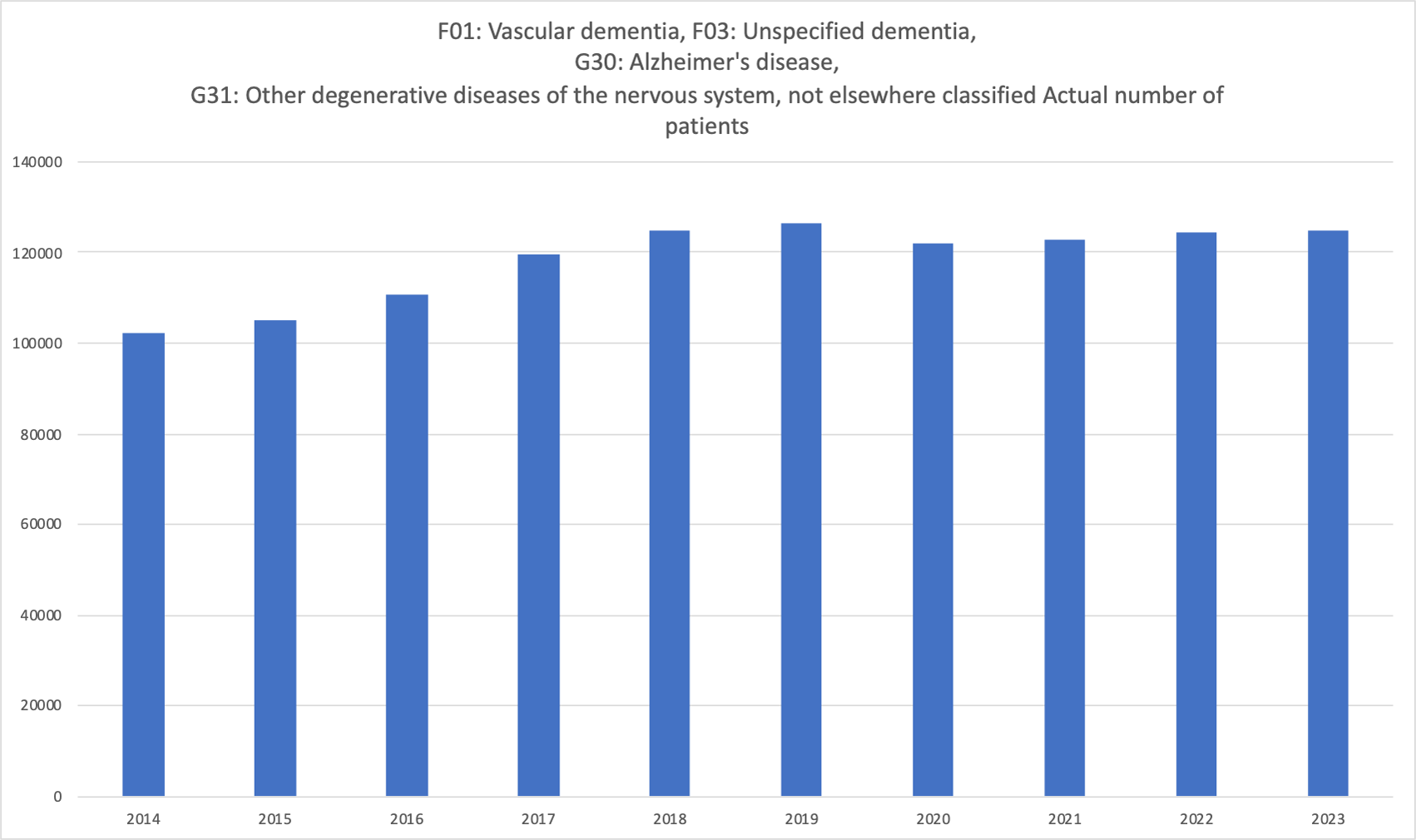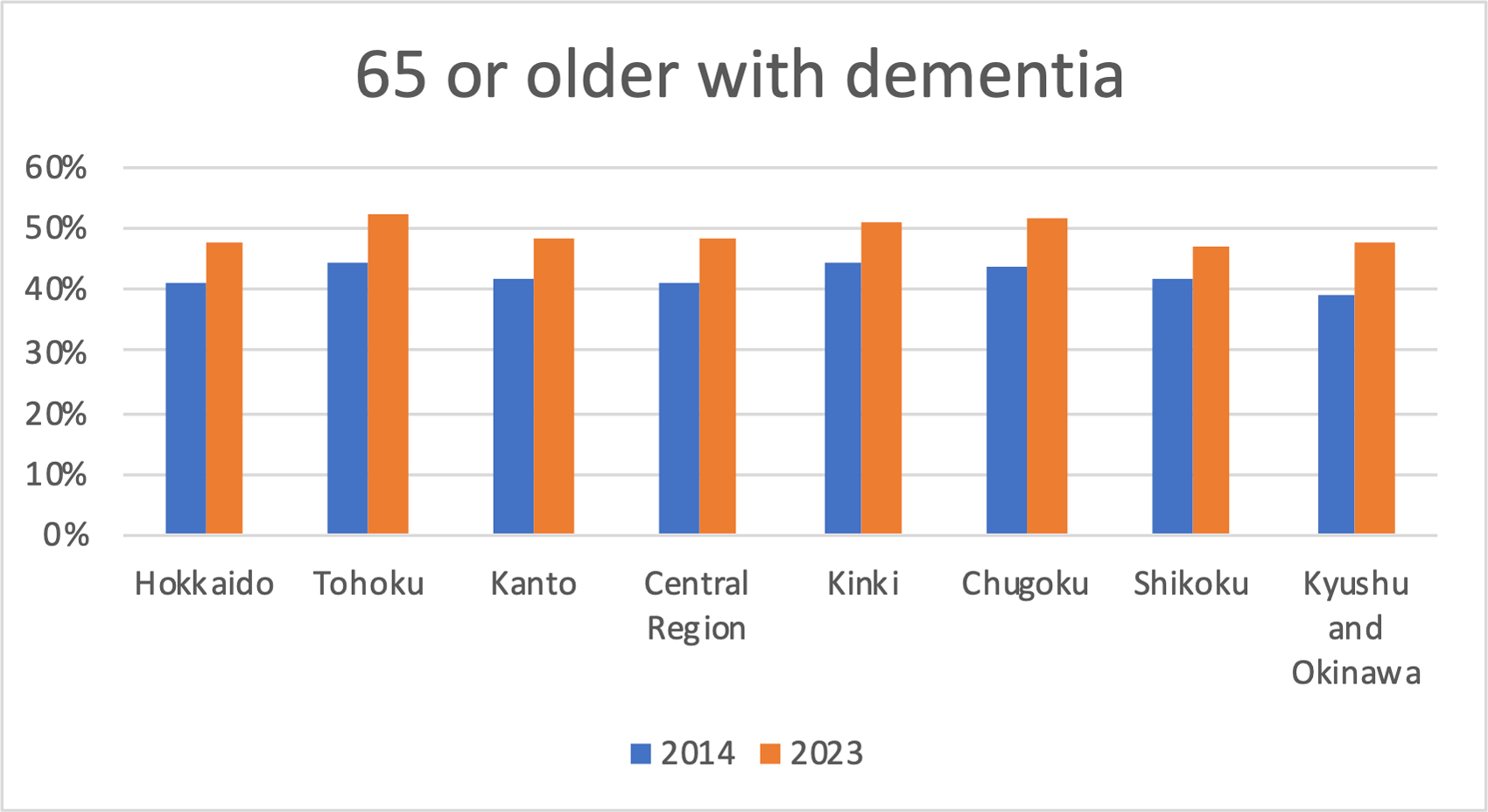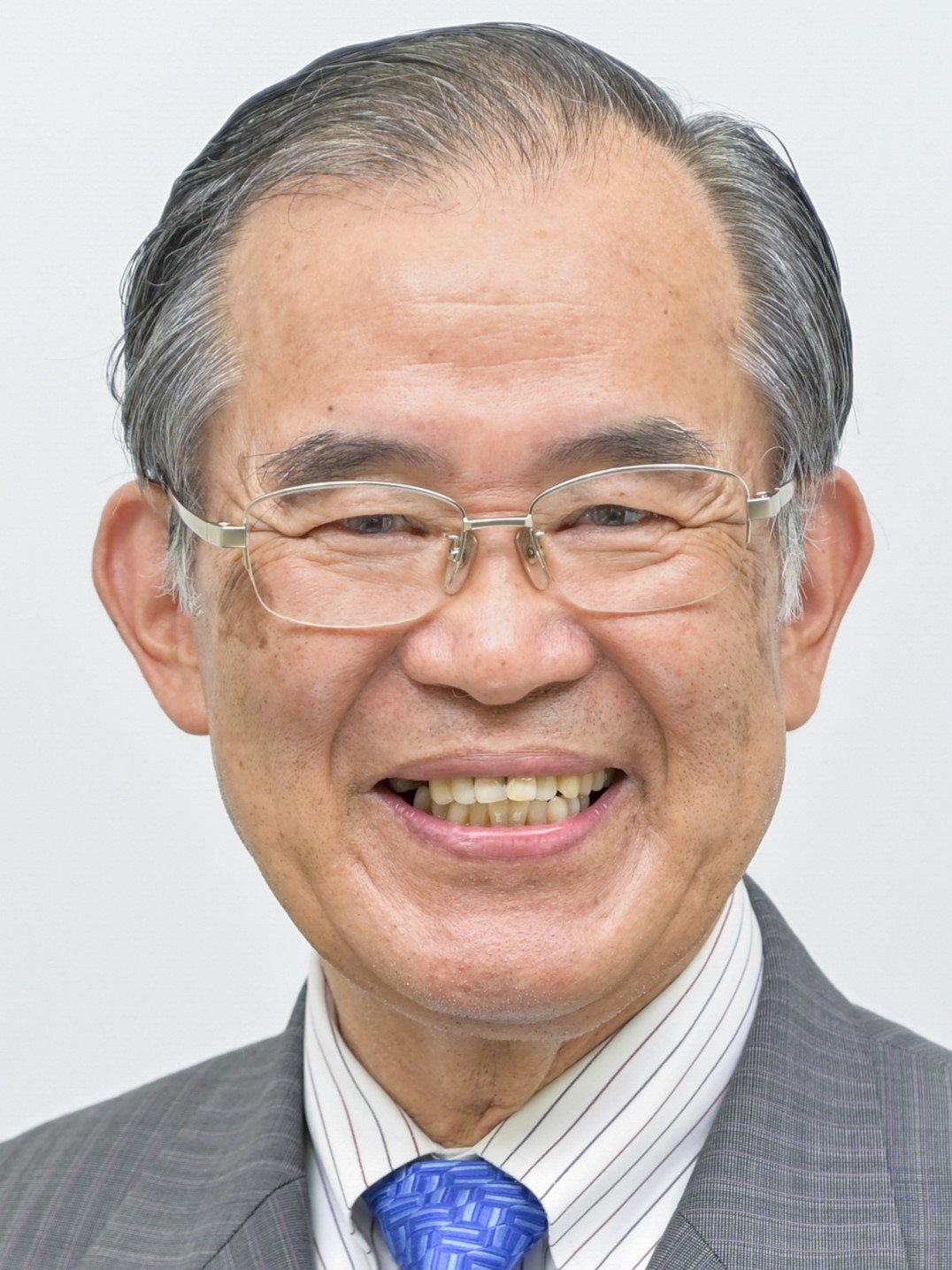News
September 21 is World Alzheimer’s Day Medical big data to analyze trends in dementia patient demography over the past 10 years in Japan
- September 18, 2024
Medical Data Vision Co., Ltd. (Chiyoda-ku, Tokyo; President and CEO: Iwasaki Hiroyuki), which owns Japan’s largest medical database and promotes evidence-based medicine, extracted data on trends in the number of dementia patients over the past 10 years ahead of World Alzheimer’s Day on September 21.
The survey period extended from April 2014 to March 2024. There were 197 facilities with complete data over that period. From these, the following categories of dementia were extracted: International Classification of Diseases (ICD-10) F01 vascular dementia, F03 unspecified dementia, G30 Alzheimer’s disease, G31 other degenerative diseases of the nervous system, and not elsewhere classified.
Trends in the number of dementia patients over the past 10 years (Graph 1)

period : April 2014 to March 2024
Only hospitals with complete data for the specified month
Number of facilities that meet basic requirements: 197
Graph 1
The number of outpatients decreased overall in 2020 due to the spread of COVID-19 but has since shown an upward trend.
Proportion of dementia patients aged 65 and over (Graph 2)

Data period : April 2014 to March 2015 , April 2023 to March 2024
Only hospitals with complete data for the specified month
Number of facilities that meet basic requirements: 197
Graph 2
In the Tohoku region, which has the highest rate, the proportion of elderly people is increasing due to the outflow of younger people as the population ages, so the proportion of dementia patients may also be increasing.
In addition, as the population declines and depopulation progresses, it is possible that the weakening of local communities and the isolation of the elderly are accelerating the progression of dementia.
Comments from doctors in the field of dementia treatment

Chairman of the board of directors of the Social Medical Foundation Sekishinkai
Director of Saiwai Clinic
Dr. Takahiro Sugiyama
The Alzheimer’s drug “lecanemab” was approved in Japan in September 2023, and “donanemab” is expected to be officially approved in the future. With the arrival of lecanemab and donanemab, which remove causative substances and inhibit the progression of dementia, Alzheimer’s treatment has entered a phase where it can be cured, rather than just “slowing progression.” It is still in development and cannot be called a “dream new drug that can cure,” but it has a significant psychological effect.
Excluding the two new drugs mentioned above, there are currently four types of medications approved for the treatment of Alzheimer’s in terms of medical fees. In advanced cases, medications cannot be expected to be effective, so early treatment is recommended.
Furthermore, “curable dementia” caused by normal pressure hydrocephalus, chronic subdural hematoma, brain tumors, etc. may improve with prompt diagnosis and neurosurgical treatment, so early diagnosis and treatment are necessary in that sense as well.